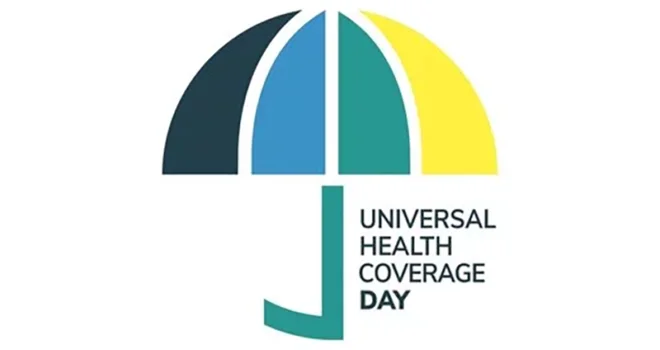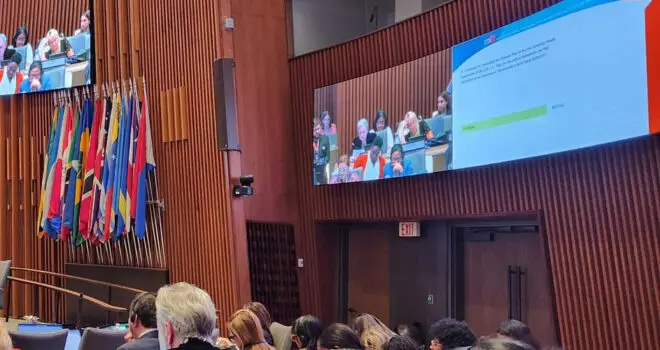The year 2023 marks a crucial turning point in the global effort to ensure that everyone, everywhere, has access to the health services they need without suffering from financial hardship. In September, the United Nations will convene a High-Level Meeting (HLM) to review the implementation of the UN Political Declaration on Universal Health Coverage adopted by the UN General Assembly in 2019.
Universal Health Coverage (UHC) has the potential to transform the lives of millions of people living with, or at risk of, cardiovascular disease by ensuring the availability, accessibility, and affordability of essential and life-saving interventions – from promotion to prevention, treatment, rehabilitation, and palliative care – to stay heart healthy.
On 9 May, the World Heart Federation (WHF) proudly represented the global cardiovascular community at an official multi-stakeholder hearing in New York. The President of the UN General Assembly convened senior-level representatives from Member States, parliamentarians, relevant United Nations entities, non-governmental organizations, and civil society organizations to identify possible gaps in implementation and propose potential actions, as well as investments, to achieve universal health coverage by 2030.
The preparatory meeting provided a unique opportunity to advance policy priorities for circulatory diseases, including cardiovascular disease, and set the agenda for the upcoming UN HLM on Universal Health Coverage. In a statement to delegates, Diana Vaca McGhie, Chair of the WHF Advocacy Committee, and Prof Tom Gaziano, Chair of the WHF Science Committee, urged governments to:
- Engage with people living with noncommunicable diseases and circulatory conditions, including cardiovascular disease, to keep UHC people-centred;
- Accelerate progress towards UHC through robust and well-financed primary health care systems based on the principles of quality, equity, accessibility, and affordability;
- Ensure adequate and sustained financing for, and availability of, circulatory health services, in the context of national UHC strategies; and to
- Include cost-effective circulatory health interventions into national UHC benefit packages of essential interventions to be delivered at primary health care level, drawing on guidance from Appendix 3 of the WHO Global NCD Action Plan and the HEARTS Technical Package.
On 24 May, WHF and its partners in the Global Coalition for Circulatory Health will release a position paper to provide Member States and other relevant stakeholders with a list of evidence-based recommendations to address the burden of circulatory diseases through universal health coverage.
Universal Health Coverage is a shared responsibility that involves people and communities around the world. Together, we can promote heart health and address the global health inequities that affect millions of people. Follow our actions and support our efforts towards achieving heart health for everyone!


